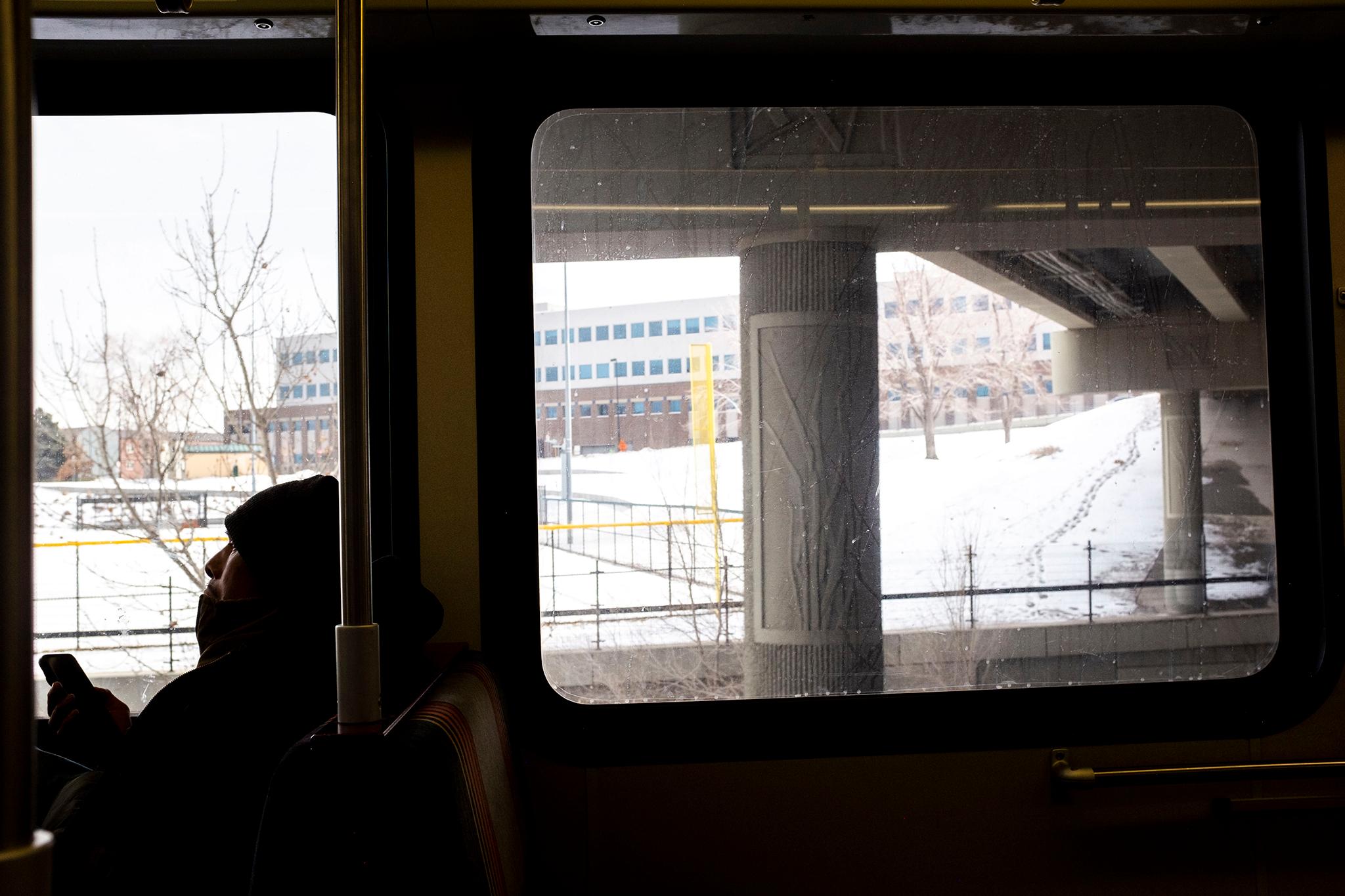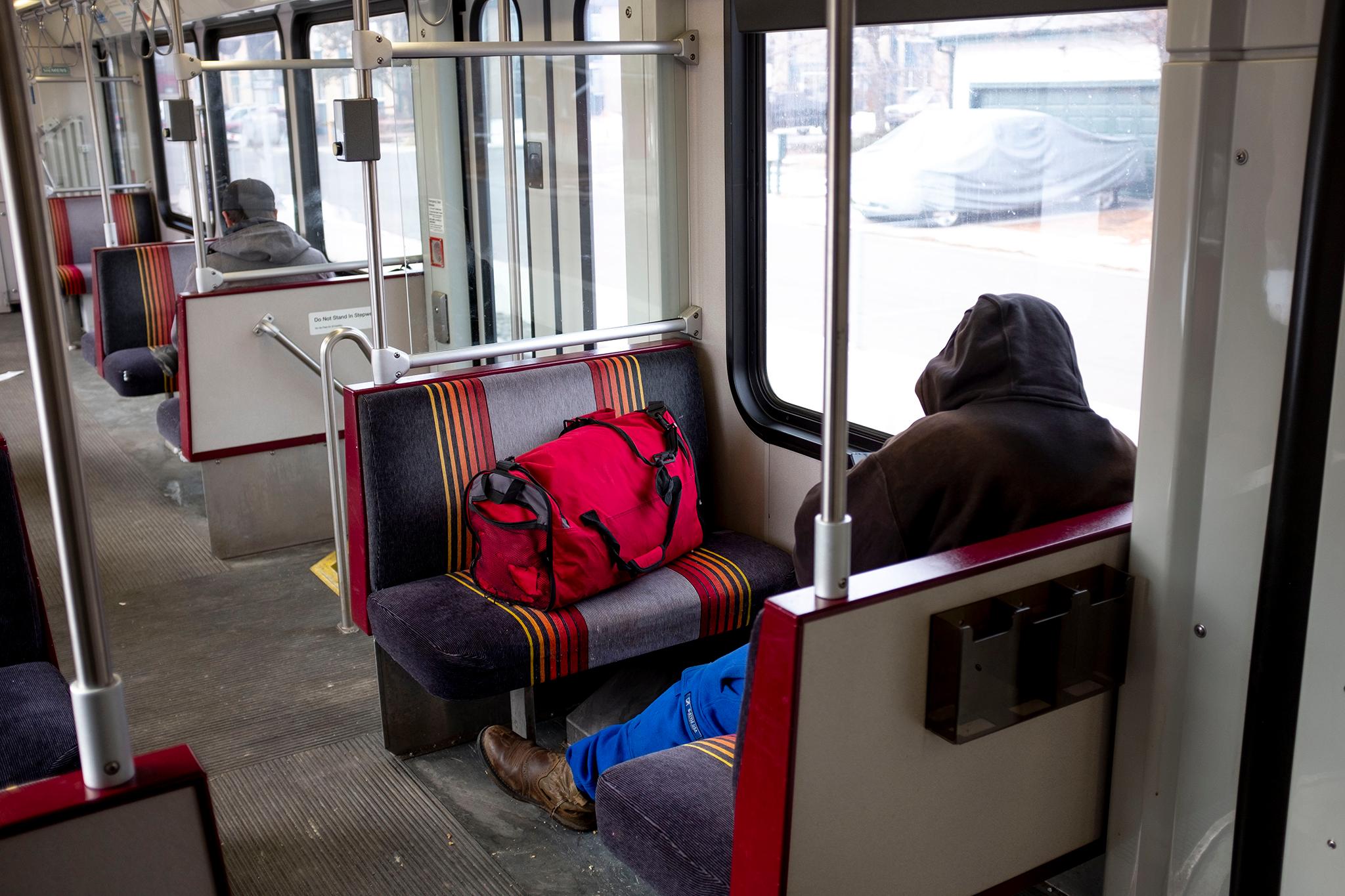The Regional Transportation District is considering banning passengers from riding on its system indefinitely and for other behaviors it deems undesirable as part of an ongoing effort to make buses, trains and stations feel safer.
RTD leaders say the policy changes, which will go to the agency's board of directors for approval in February, are part of their public push to restore a safe and welcoming transit environment.
"This isn't targeting folks," said Joel Fitzgerald Sr., RTD's chief of police. "This is just trying to make sure that our environment is one that the customer gets exactly what the customer expects."
But the proposed changes have come under criticism from at least one member of RTD's board, as well as advocates for people experiencing homelessness and the American Civil Liberties Union.
Here's a peek at RTD's proposed changes.
The main document under review is the passenger code of conduct, which includes a list of nearly 50 prohibited behaviors like smoking, riding without paying, and putting one's feet on a seat. The document serves as a rulebook, enforced by RTD's own police force and contracted security, for passengers on RTD's system.
Copies of the proposed changes to that policy and the related suspension policy were shared with CPR News by leadership of the ATU-1001, which represents most train and bus operators and mechanics.
RTD staff have proposed modifying a handful of existing prohibited behaviors and adding about half a dozen new ones, including:
- harassment, sexual harassment, or bullying
- violent, profane or otherwise provocative language
- lying on a floor, bench, platform, or other surfaces
- the unauthorized use of an electric outlet
- riding on the system indefinitely
First-time violators of the code of conduct policy are generally given a warning, Fitzgerald said, though punishment for chronic offenders can escalate to permanent suspensions from RTD's system and ultimately criminal prosecution.

Both policies would also strike references to "passengers," using "customers" instead. That was done intentionally to focus the agency's attention on paying customers, Fitzgerald said.
"We are, and we should be, making folks accountable for actually paying fares," Fitzgerald said.
These proposed changes come as RTD is trying to attract commuters back to its buses and trains.
Ridership is slowly recovering from the pandemic but remains roughly at only about 60% of pre-pandemic levels. That's happening even as more workers are returning to their offices downtown, where nearly all of RTD's rail lines terminate.
RTD is hoping to lure commuters like Stephanie Waechter of Lakewood, who drives to her downtown office -- even though she could take RTD's W-Line that runs through the western suburbs.
"Mainly I don't feel safe on public transit," she said while walking down the 16th Street Mall this week. "I've had encounters with people that I would prefer not to encounter."
Current passengers are feeling unsafe on RTD, too. About a third of bus and rail customers that responded to an RTD survey last year said they thought they could become a victim of crime while riding or waiting at a rail station or bus stop.
RTD and Denver Police officials centered their attention on Union Station about a year ago. The ensuing crackdown resulted in many drug-related arrests but few for violent offenses. That focus on the downtown hub appears to have pushed some drug users to the trains themselves and outlying stations.
A CPR News reporter who traveled on three RTD light rail lines earlier this week for about two hours saw families, students, and professionals riding to or from downtown Denver. But there were a sizable number of people who appeared to be using and exchanging drugs as well.
One rider, Chris Hendrix of Thornton, said he's been homeless and has struggled with addictions to alcohol and fentanyl. He said he tries to wait until he's at his destination to use drugs out of respect for other passengers. But on cold, windy days, he acknowledged using drugs on the trains themselves.
"I'm not perfect," he said. "But usually there's nobody on the trains. It's usually empty."
Hendrix said his addictions have taken away "everything that I love," and he asked for the general public's compassion toward those struggling with substances.
Using drugs like fentanyl already violates RTD's code of conduct policy and the law. But another one of Hendrix's occasional habits -- riding trains to stay warm -- could be newly prohibited. He said he knows people that still ride RTD all day long.

"They'll huddle up and get warm and try to get what sleep that they can," Hendrix said. "I mean, it's not like they're hurting anybody."
It's unclear whether Hendrix routinely pays to ride RTD or not -- he had to run to make a bus connection and hasn't returned requests for clarification. Fitzgerald said RTD's proposed changes would prohibit people from riding continuously for "non-transportation purposes" -- even if they pay a fare initially.
The proposed changes go too far and are too broad, said newly elected RTD board member JoyAnn Ruscha.
She also worried the proposed rule aimed at continuous riding is aimed at unhoused people.
"If someone is riding the bus and they are not otherwise violating any other rules, they're not causing any harm, there is absolutely no need to criminalize and penalize that behavior," Ruscha said.
Cathy Alderman, chief communications and public policy officer for the Colorado Coalition for the Homeless, agreed, saying it amounted to "just one more way to try to make people experiencing homelessness disappear."
"I don't think that by removing people from the train we're going to do anything to resolve their homelessness," she said.
Trying to create a safe environment for all transit riders is a worthy goal, said Anaya Robinson, senior policy strategist at the ACLU of Colorado. But he worries the new policies will be unevenly applied.
"If somebody is paying fares, not harming anyone, not breaking any laws, then RTD maybe shouldn't be the ones determining whether or not somebody can use the bus or transit in general," Robinson said.
Fitzgerald defended the proposed changes, saying social service agencies are better equipped than RTD to provide people struggling with homelessness or addiction the support they need. He said customers with valid fares would not be subject to the rule and also pointed to RTD's own growing staff of mental health clinicians.
Moreover, as a Black man who grew up in Philadelphia, Fitzgerald said he's "very conscious" of the potential for over-policing.
"This isn't a war against the poor. This is not a war against homelessness or mental illness," Fitzgerald said.
"No one should be using fentanyl on a train next to your child going to school in the morning," he added. "I think we'd all agree universally that that's unacceptable."
RTD was going to implement the new policies next month. Now its board wants to take a look.
The last time RTD changed its code of conduct, it put together a committee with RTD staff and board members, as well as advocates for people experiencing homelessness. The code was eventually approved by RTD's full board of directors in July 2020 after some of its more controversial elements were removed.
This time, Alderman, with the Colorado Coalition for the Homeless, said her organization wasn't consulted in the new proposed changes.
"That's not to say that we might not be, but to date we haven't been," she said.
RTD staff drafted the changes internally and intended to put them into effect on Feb. 5, saying the changes came out of the "regional partnership commitment" the RTD board unanimously approved in spring 2022. But some RTD board leaders said this week that they want the changes to go through that publicly elected body.
RTD CEO and General Manager Debra Johnson agreed to that and the delay.
"I am not trying to usurp any responsibility that this body has," Johnson told the board's executive committee this week.

Johnson also told the board that the new policies were drafted in coordination with members of the ATU-1001. But that apparently did not include the union president Lance Longenbohn, who has pushed for more security to protect drivers. Reached by phone earlier this week, he said he wasn't aware of the proposed changes.
After obtaining copies of them and sharing them with CPR News, Longenbohn said he wasn't convinced the new policies would make operators any safer without an increase in enforcement.
"The lack of security has been a problem," Longenbohn said.
He told a brief story to illustrate the issue: A driver recently called for security when a passenger was beating on the side of the bus with a pipe. The driver didn't get a response in the moment, Longenbohn said, and was told later by a dispatcher that, "We just don't have any security."
"It certainly doesn't give the operator much comfort in their times of need," he said.
Fitzgerald said he hopes to increase patrols and fare checks across the RTD system as his department adds more sworn officers.
"We are hiring," he said.














